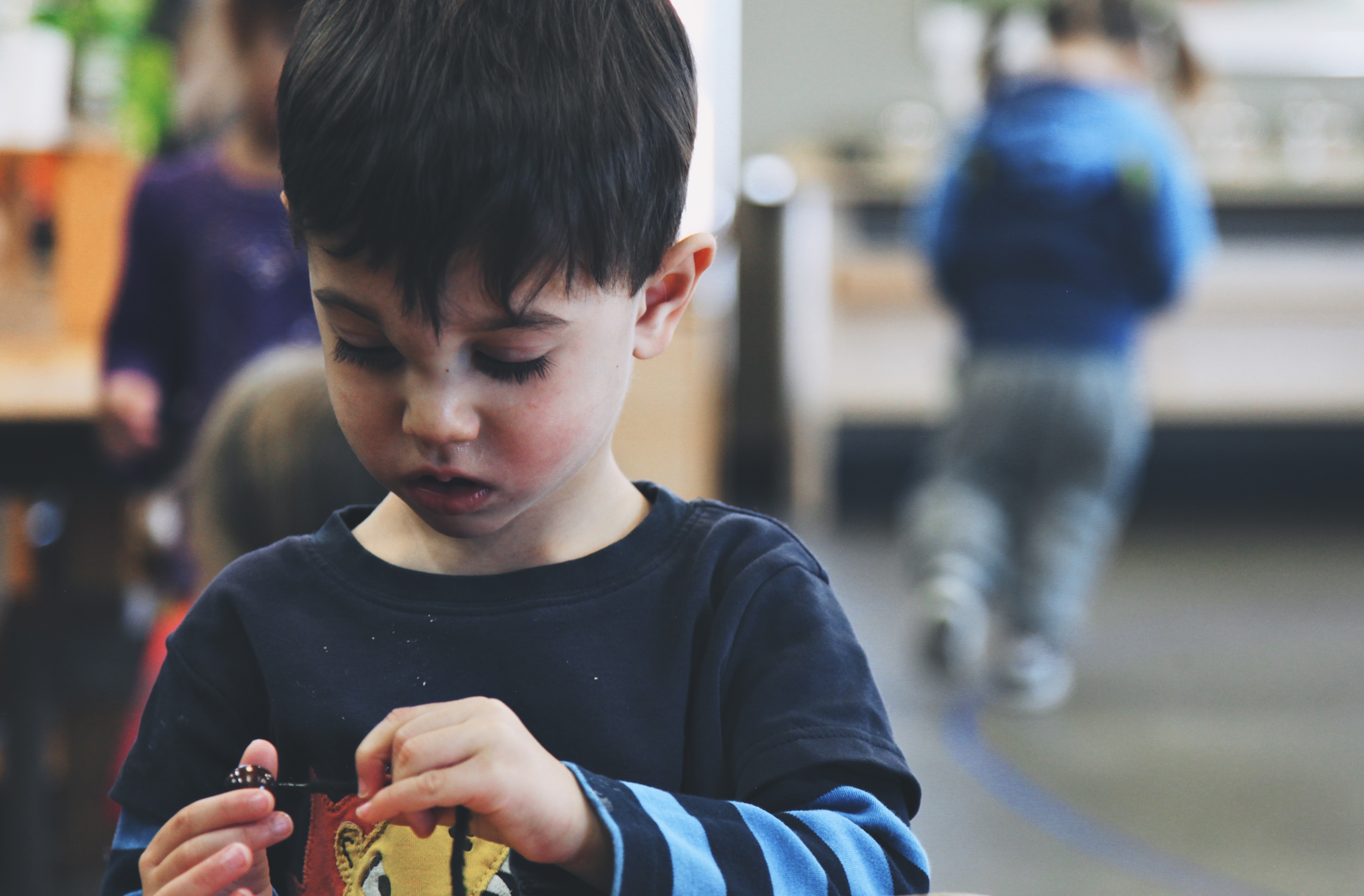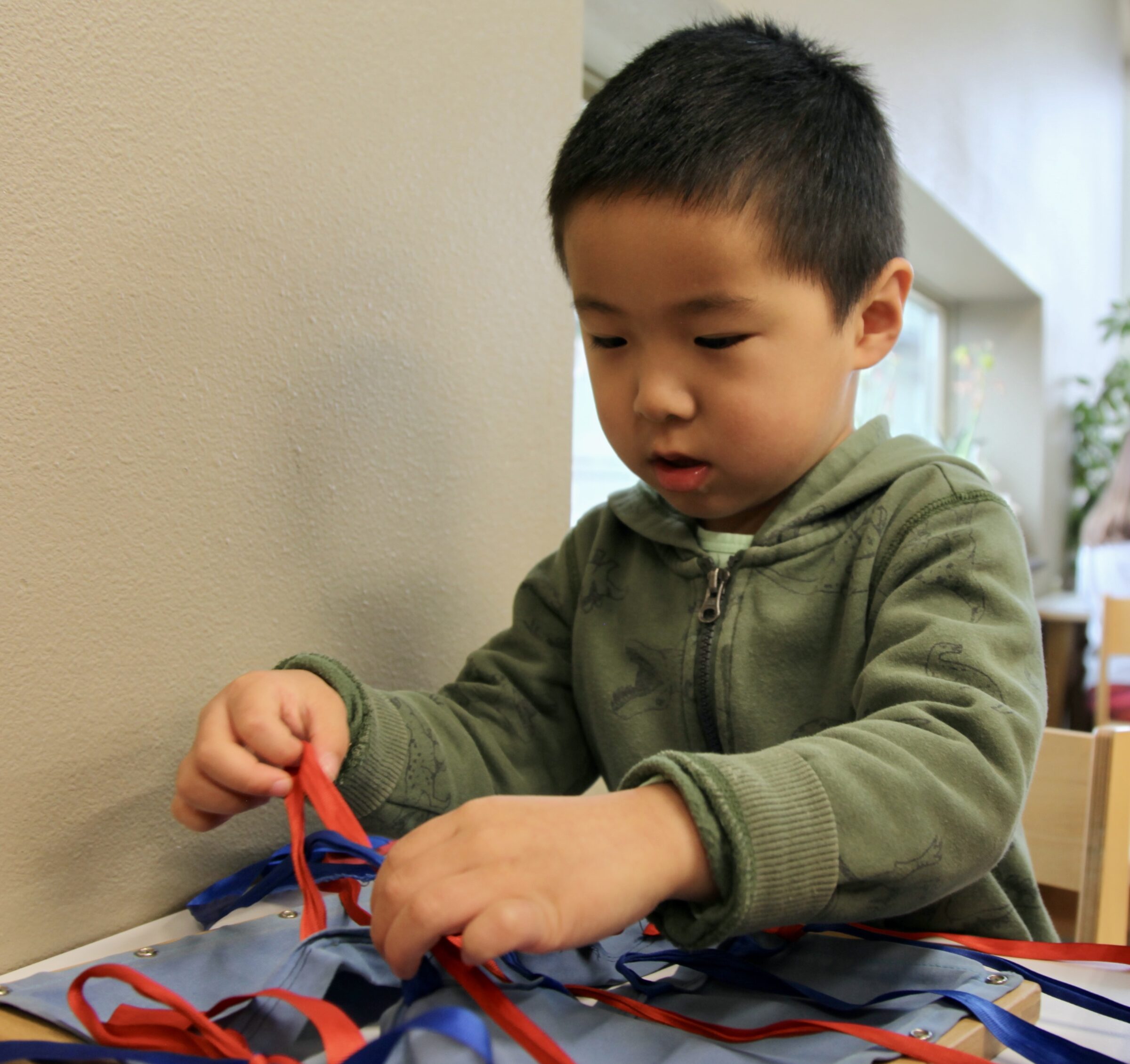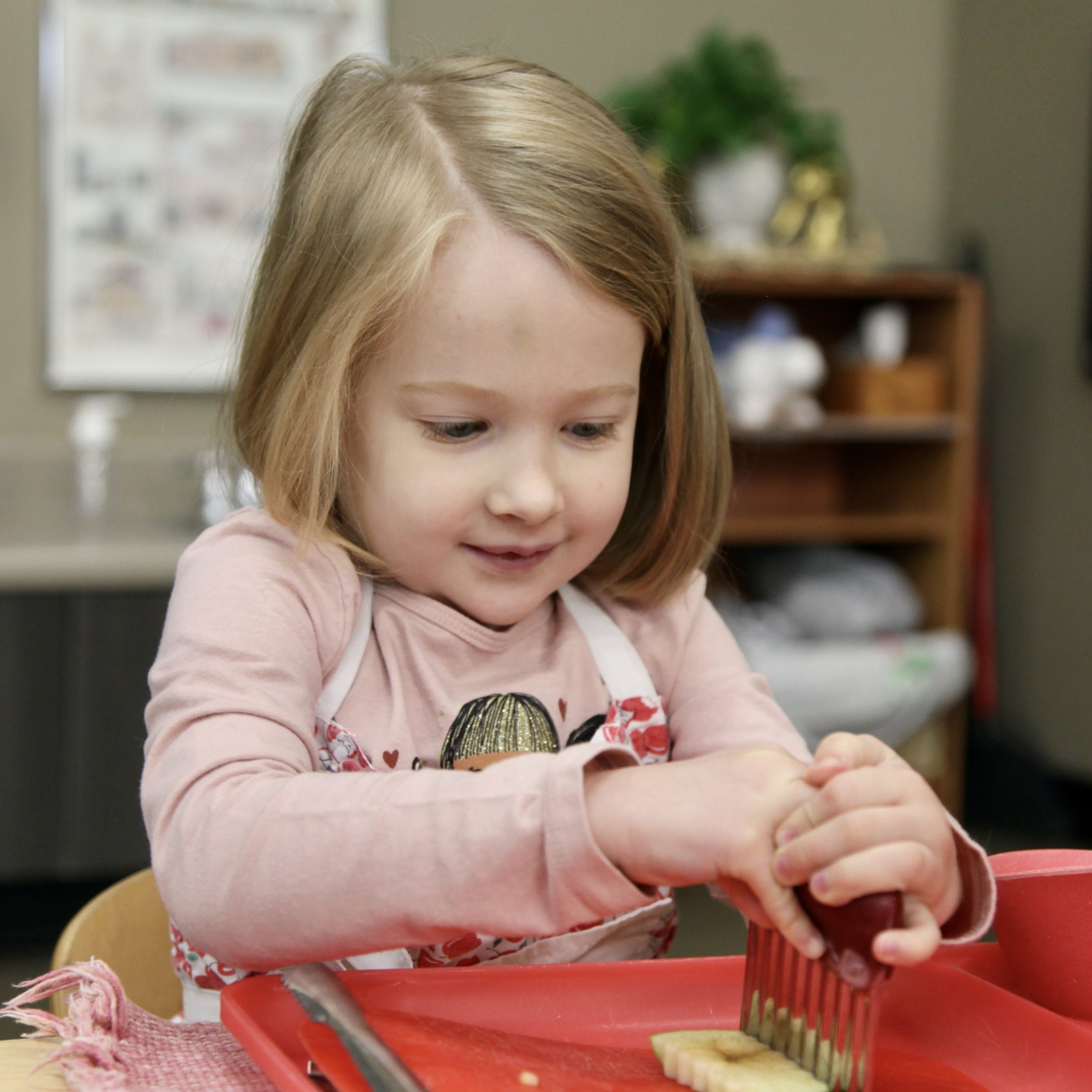Never Help a Child
Thoughts & Reflections
Maria Montessori writes, “Never help a child with a task at which he feels he can succeed.”
Oh yes, of course! This is easy! But note, this is different from, “Never help a child with a task where he is already successful.” There are so many times we “help,” and then, we fall into another Montessori quote, from The Absorbent Mind, once “… independence has been reached, the adult who keeps on helping becomes an obstacle.”
Let us acknowledge two things. First, help always comes from a good place. Second, help isn’t always helpful. Okay, now we can move forward.
True help always comes from a good place. Washing the dishes and accidentally breaking your partner’s favorite mug, straightening up messy (carefully organized) papers, mixing up the donate and laundry piles, we were just trying to help.
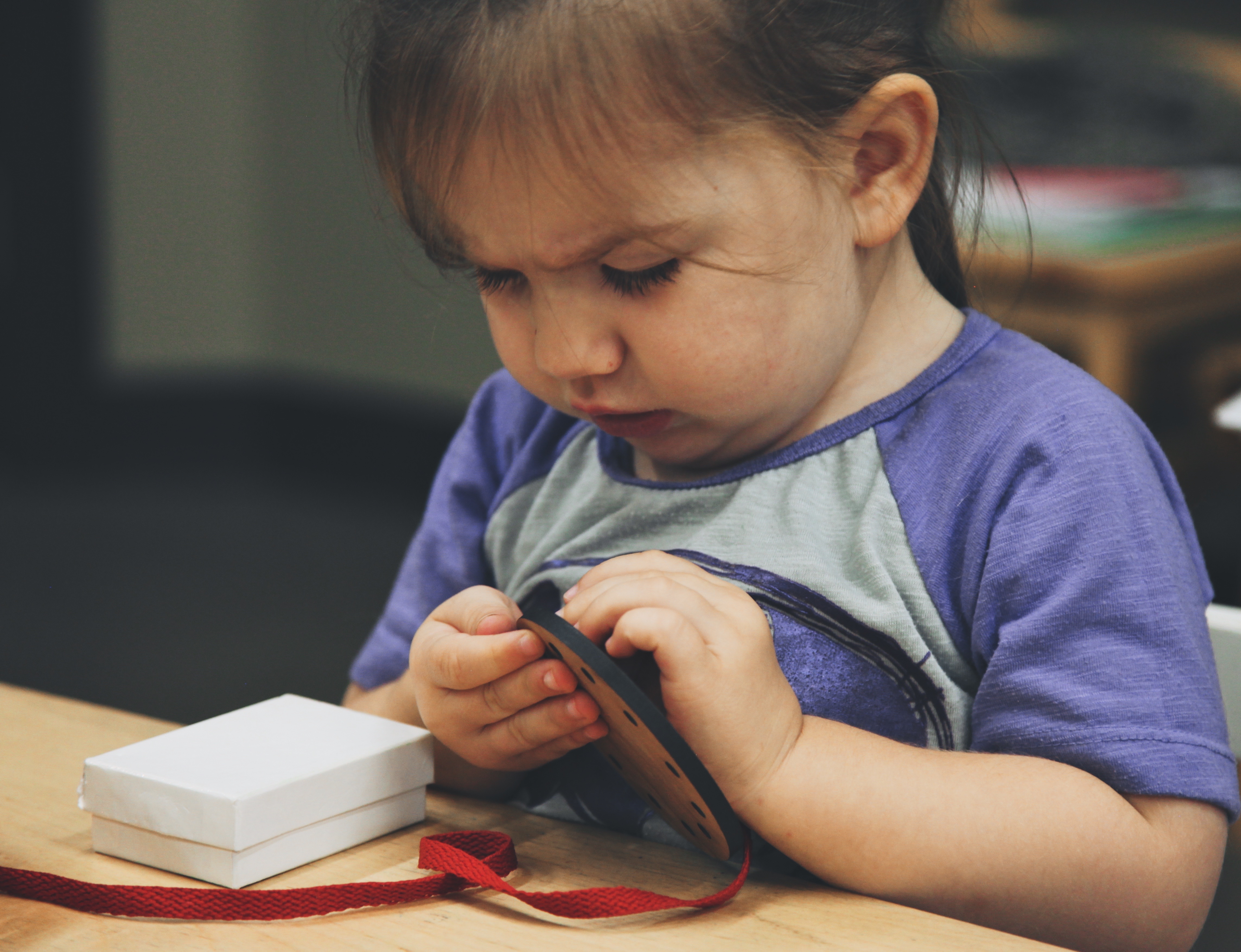
It is the same when we are helping children. You’re taking a bit of time with that zipper, here let me “help” you. That bucket looks really heavy, let me “help” you. You keep dropping the items you’re trying to pick up, let me “help” you. We provide the help we think is necessary, and we are proud of ourselves, thinking we’ve done a service.
And then we get frustrated when we have to keep zipping the zipper day after day, or a child’s care when walking with that water-filled bucket doesn’t increase, or those dropped items are left where they fall, waiting for an adult to care for them.
When we provide unnecessary help, we are creating dependence. We are sending the child the message they are incapable, so why would they even try?
Sometimes, frequently even, we have to sit through occasions which make us feel uncomfortable. It’s challenging to watch a child work on a button for seemingly countless minutes. It’s difficult to sit back when a child is putting something away, and can’t quite get their hands and their eyes and their brain to work together. It’s hard not to jump in when the water is taking days to get all mopped up, and then is spilled again.
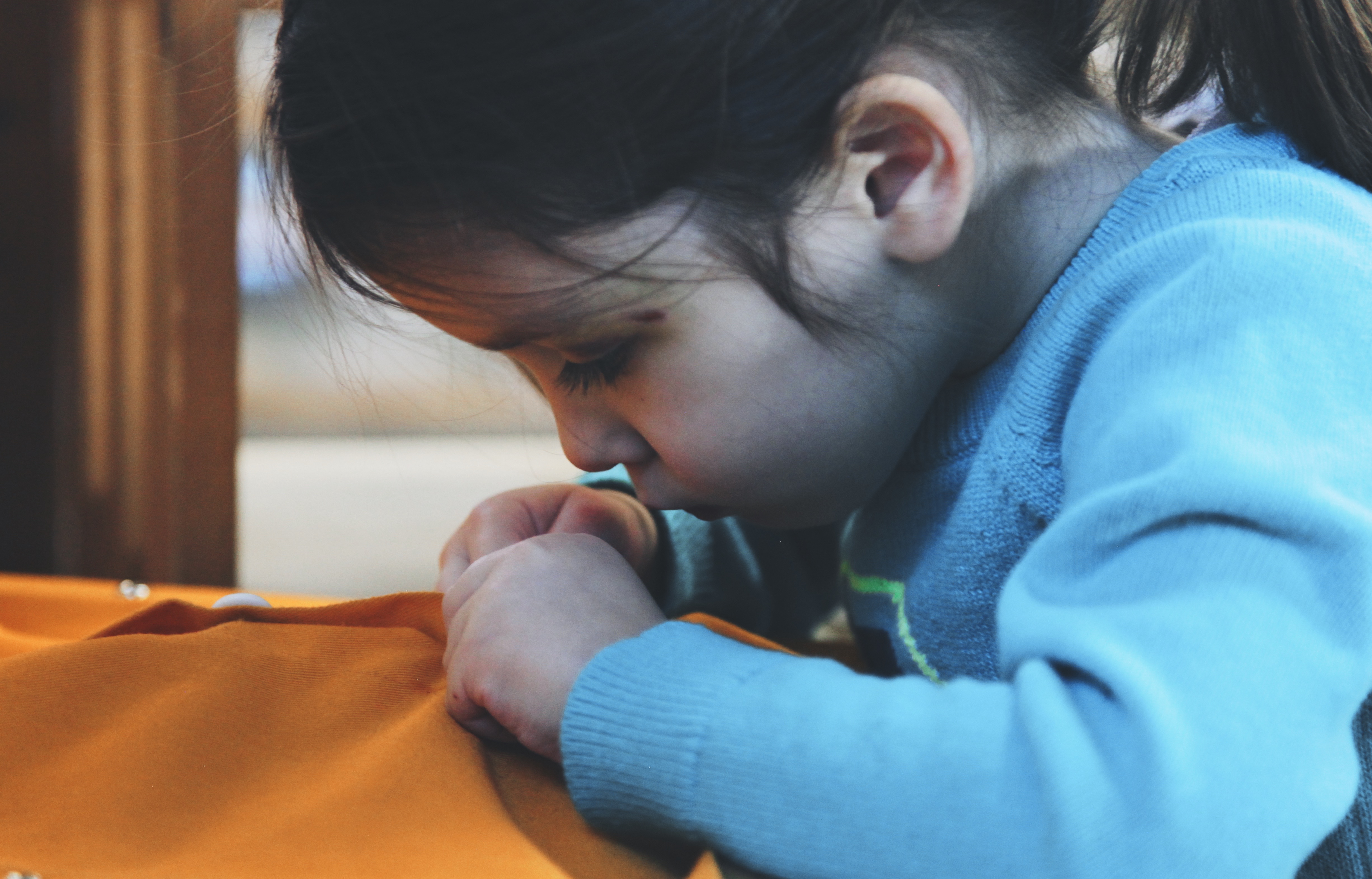
But this is problem-solving in action. They will not learn if we do things for them. That’s not just lip service, they truly Will Not Learn. Without the opportunity to practice and make mistakes, their coordination cannot develop. Without fussing with that zipper or button or shoelace, they Will. Not. Learn.
Learning is a coordination of mistakes and practice and repetition, until the right skills in the right sequence come together and can be repeated.
When we prevent the practice, we prevent the learning, and then we really are an Obstacle to Development.
Written by:
Baan Dek
